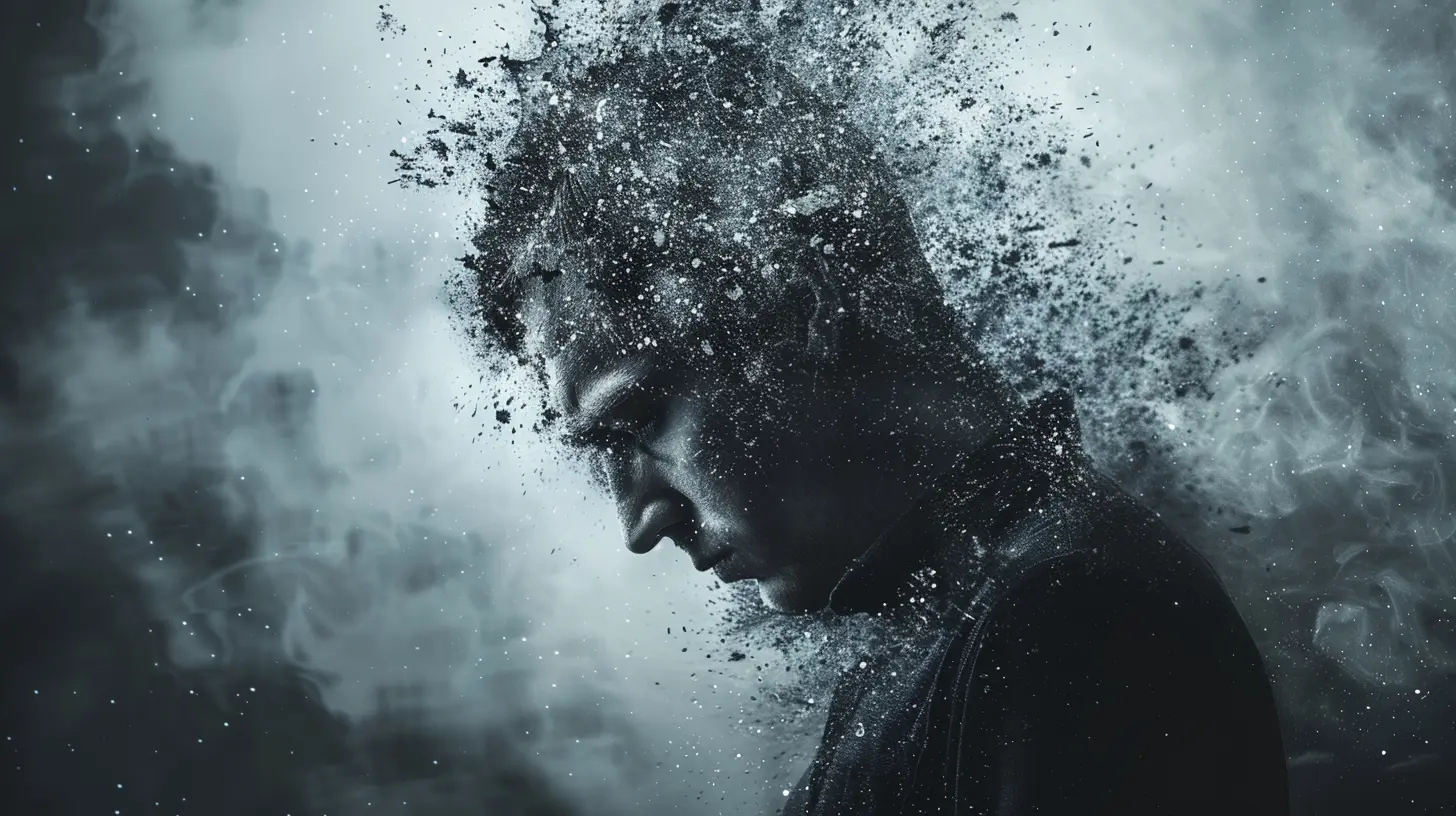The Impact of Early-Life Trauma on Adult Mental Health
22 August 2025
Have you ever wondered how experiences from your childhood can shape who you are today? It's easy to think that the past is behind you, but for many people, early-life trauma leaves a lasting impact, especially when it comes to mental health. Childhood isn't always a carefree time for everyone. Some people go through extremely difficult experiences that continue to affect them well into adulthood.
In this article, we’re going to dive deep into how early-life trauma can shape adult mental health. We’ll explore what trauma is, how it affects the brain, and the lingering effects it can have on mental well-being. If you’ve ever wondered why certain things trigger intense emotional reactions or why anxiety and depression seem to haunt some people, this article is for you.

What is Early-Life Trauma?
First things first, what exactly do we mean by "early-life trauma"? It's important to define this before we get into its long-term effects.Early-life trauma refers to deeply distressing or disturbing experiences that happen during childhood. These could be single events (think: a car accident or losing a loved one) or ongoing experiences (like abuse or neglect). Trauma can result from physical, emotional, or sexual abuse, domestic violence, parental substance abuse, divorce, or even bullying. Some children grow up in environments where they constantly feel unsafe, and that feeling of insecurity can stay with them for years, if not a lifetime.
Types of Early-Life Trauma
- Emotional or Verbal Abuse: Constant criticism, humiliation, or rejection.- Physical Abuse: Any form of hitting, slapping, or inflicting physical pain.
- Sexual Abuse: Any unwelcome sexual contact or exploitation.
- Neglect: When a child's basic needs for love, food, shelter, and care are not met.
- Witnessing Violence: Children who observe violence, especially in their homes, can also experience trauma.
- Loss of a Loved One: Grief from losing a close family member or friend can also be traumatic.
Childhood is when we are the most vulnerable. The brain is still developing, and during this time, we are forming core beliefs about ourselves and the world around us. When trauma occurs during these formative years, it leaves deep scars that can affect emotional and psychological well-being later in life.

How Trauma Affects the Brain
Now that we understand what early-life trauma is, let’s talk about how it affects the brain. Trauma doesn’t just affect your memories — it changes the way your brain works. This is where things start to get really interesting (and maybe a little scary).The Science Behind It
When a child experiences trauma, their brain is flooded with stress hormones like cortisol and adrenaline. These hormones are part of the body’s "fight or flight" response — they help us react to danger. But when the brain is constantly exposed to these hormones during trauma, it can cause long-term changes.One of the key areas of the brain affected by trauma is the amygdala, which is responsible for processing emotions like fear and anger. Trauma can cause the amygdala to become overactive, making it easier for people to feel threatened or anxious, even in situations that aren’t dangerous.
Another important part of the brain that’s affected is the prefrontal cortex, which is responsible for decision-making, self-control, and reasoning. Trauma can weaken this part of the brain, making it harder to manage emotions and make thoughtful decisions. This is why people who have experienced trauma often struggle with impulse control, mood swings, or risky behaviors.
Finally, trauma can also shrink the hippocampus, the part of the brain involved in memory and learning. This might explain why people with a history of trauma often have trouble remembering details or feel "disconnected" from their past.
Trauma and the Body's Stress Response
Think of your brain like a smoke detector. It’s supposed to alert you when there’s real danger. But when someone experiences trauma, it’s as if the smoke detector gets stuck in the "on" position. Every little thing can feel like a threat, even if it’s something as harmless as a loud noise or an argument with a friend.This constant state of alertness keeps the body in a heightened stress response. Over time, this can lead to chronic stress, anxiety, and even physical health problems like high blood pressure or heart disease.

The Long-Term Impact of Early-Life Trauma on Adult Mental Health
So, how does all of this translate into adulthood? The effects of childhood trauma don’t just disappear when you grow up. In fact, they can follow you into your adult life in some pretty significant ways.Increased Risk of Mental Health Disorders
One of the most direct consequences of early-life trauma is a greater risk of developing mental health disorders. Studies have shown that people who experienced trauma as children are at a higher risk for conditions like:- Depression: Feelings of hopelessness and sadness are commonly reported by adults who experienced trauma.
- Anxiety: Overactive amygdalas can lead to constant feelings of worry and fear.
- Post-Traumatic Stress Disorder (PTSD): Flashbacks, nightmares, and hypervigilance are signs of PTSD, which can develop after experiencing trauma.
- Personality Disorders: Trauma can disrupt the development of a stable sense of identity, leading to disorders like Borderline Personality Disorder (BPD).
- Substance Abuse: Many people turn to drugs or alcohol to cope with the emotional pain caused by trauma.
- Eating Disorders: Trauma is often linked to disorders like anorexia, bulimia, or binge eating, as individuals try to regain a sense of control.
Emotional Dysregulation
Adults who experienced trauma as children often struggle with regulating their emotions. This means they may have intense emotional reactions to things that others find minor. For example, someone might fly into a rage over a small disagreement or feel overwhelming sadness after a minor setback.This emotional rollercoaster can make it difficult to maintain healthy relationships or manage stress in daily life. It can lead to feelings of being "out of control" or like you're always on the verge of an emotional breakdown.
Difficulty Forming and Maintaining Relationships
If you experienced trauma in your early years, forming healthy, trusting relationships as an adult can feel like climbing a mountain. This is especially true for people who experienced neglect or abuse from those who were supposed to care for them, like parents or caregivers.Trust issues, fear of abandonment, and difficulty with intimacy are all common among adults who experienced trauma in childhood. These issues can prevent them from forming deep connections with others, leaving them feeling isolated or disconnected.
Low Self-Esteem and Identity Struggles
Children who experience trauma often internalize negative beliefs about themselves. They might grow up feeling unworthy of love or believing they are fundamentally flawed. These beliefs can stick with them well into adulthood, manifesting as low self-esteem or even self-hatred.Even if someone appears to have their life together on the outside, they may still carry feelings of inadequacy or self-doubt on the inside. These identity struggles can make it hard to pursue goals, advocate for oneself, or even just feel comfortable in one’s own skin.

Can You Heal from Early-Life Trauma?
Here's the big question: Can someone heal from early-life trauma? Fortunately, the answer is yes, but it’s not always easy. Healing from trauma is possible, but it often requires professional help, time, and effort.Therapy
One of the most effective ways to deal with trauma is through therapy. Cognitive Behavioral Therapy (CBT) and EMDR (Eye Movement Desensitization and Reprocessing) are two evidence-based approaches that have been shown to help people process and heal from trauma.- CBT helps individuals identify negative thought patterns and replace them with healthier ones.
- EMDR uses guided eye movements to help process traumatic memories, reducing their emotional impact.
Building Healthy Relationships
Another important part of healing is learning to build healthy, supportive relationships. This can be challenging for people with trust or intimacy issues, but it’s a crucial step in recovery. Surrounding yourself with people who respect and care for you can help you feel safe and rebuild your sense of trust.Self-Care and Mindfulness
Engaging in regular self-care and mindfulness activities can also help manage the symptoms of trauma. Practices like meditation, journaling, and exercise can reduce stress and improve emotional regulation.Remember, healing from trauma is not linear. It’s a journey, and there will be ups and downs. But with the right support and tools, it is possible to break the cycle of trauma and find peace and fulfillment in life.
Final Thoughts
The impact of early-life trauma on adult mental health is profound. Trauma can shape the way we think, feel, and interact with the world around us. But it’s important to know that trauma doesn’t have to define your future. With the right support, it’s possible to heal and build a life that isn’t ruled by past experiences.If you or someone you know is struggling with the effects of trauma, reaching out for help from a therapist or counselor is a good first step. You’re not alone, and there is hope for a better, healthier future.
all images in this post were generated using AI tools
Category:
TraumaAuthor:

Janet Conrad
Discussion
rate this article
1 comments
Delta Flores
Early trauma shapes adult mental health profoundly.
September 7, 2025 at 3:39 PM

Janet Conrad
Absolutely, early trauma can profoundly influence mental health, impacting emotional regulation, relationships, and coping strategies in adulthood. Understanding this connection is crucial for effective healing and support.


